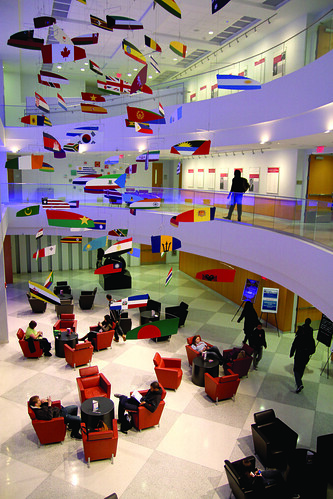The MIS department publication ranks No. 1 in the world.

In late January, the Association for Information Systems ranked the Fox School of Business’ Management Information Systems department No. 1 in the world for research publications.
The AIS based its rankings off analyses of publications by two leading information systems journals: Management Information Systems Quarterly and Information Systems Research.
MISQ is a “peer reviewed scholarly journal” published by the University of Minnesota. ISR is a journal published by the Institute for Operations Research and the Management Sciences.
The ranking placed Temple ahead of the University of Maryland, which came second, and Emory University and the University of British Columbia, which tied for third.
In addition to the department earning this title, several Fox faculty members received top billing for their work.
Youngjin Yoo, the director of Fox’s Center for Design and Innovation, ranked No. 1. Dr. Paul Pavlou, the director of Fox’s Ph.D. program ranked No. 2 and Dr. Angelika Dimoka, the director of Fox’s Center for Neural Decision Making, placed No. 7.
The publications produced by MIS faculty are used to annually evaluate the department. During the last three years, Yoo published nine general papers, 15 conference papers and one book chapter.
Of the studies printed in MISQ and ISR over the last year, Temple had nine top works. Meanwhile, Maryland and British Columbia had five and Emory had six, Dimoka said.
Founding MIS Department Chair Dr. Munir Mandviwalla attributed Temple’s prestige to its consistent ability to remain with present trends.
“In the last 10 years since the department was formed by Dean Moshe Porat, we have consciously recruited bright, young and upcoming faculty who are at the leading edge of the discipline, as opposed to more senior-established people who may be entering the end of their productive cycle,” Mandviwalla said. “We have also invested in more relevant and upcoming areas such as Web 2.0 and social media, while other universities who do MIS research have remained stuck in the past and focus on less relevant topics.”
MIS faculty regularly attend and host conferences to stay updated about current technology and information in subjects, such as market research.
Yoo personally held a research workshop on digital innovation. Dimoka presented at the International Conference on Information Systems in St. Louis, Mo., last December.
The department allows graduate students and select undergraduates to participate in the research.
Most of Temple’s partners are involved with the Institute for Business and Information Technology, which works to incorporate local organizations with “research, professional development, sharing best practices, placement and other topics focused on information technology.”
Yoo said he predicts steady enrollment numbers for the department, thanks to the quality of the work and faculty.
“We have good people [and] good teachers,” Yoo said.
Amelia Brust can be reached at abrust@temple.edu.


Be the first to comment